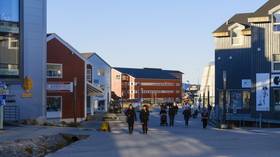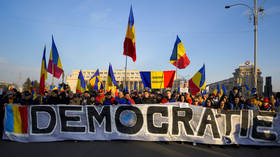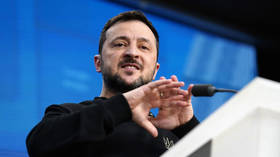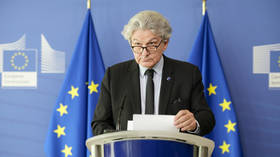Washington-based Organization of American States ‘deteriorated’, ceased to be inter-American – Argentina’s president-elect to RT
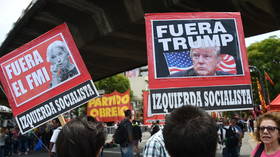
The chief regional bloc in the Americas has grown too dependent on the US, while the “interventionist” IMF shares the blame for Argentina’s economic crisis, the nation’s President-elect Alberto Fernandez told RT.
Fernandez sat down for an interview with former leader of Ecuador, Rafael Correa, on his show Conversation with Correa, aired on RT Spanish.
Correa asked Fernandez what he thinks about the role of the regional bloc, the Organization of American States (OAS), whose HQ is located in Washington, DC. “I’ve always asked myself: why must our countries resolve domestic conflicts through Washington?”
Fernandez agreed that it is a problem, saying that he “does not understand many of the decisions made by” the organization’s current chief, Luis Almagro. “The OAS has deteriorated indeed,” he said.
OAS grew too USA-focused
Washington has a long history of placing sanctions and political interventions in Central and South American nations, as well as backing coups led by the US-friendly strongmen in the region. Last month, an OAS mission heavily criticized the presidential election in Bolivia, in which socialist incumbent Evo Morales, an ardent critic of US foreign policy, was declared winner. Almagro refuses to recognize Morales’ victory until the ongoing bloc-led audit of the vote is complete.
Also on rt.com US policy destroyed Honduras, & Honduras’ destruction created opening for Trump – Max Blumenthal“Do you really believe the OAS can be salvaged?” Correa asked. “The OAS’ main problem is that it is based in Washington, and is largely funded by the US. Fidel [Castro of Cuba] called it the ‘Ministry of Colonies.’”
Fernandez replied: “Yes, you’re absolutely right.”
The OAS must regain its true nature. Right now it looks more like a North American organization, rather than an inter-American one. I still think we must work on its improvement.
IMF complicit in economic downturn
A lawyer by training, Fernandez beat incumbent Mauricio Macri in late October amid a severe economic crisis and the inflation rate surging above 50 percent. Low-income Argentinians have staged nationwide protests against austerity measures, proposed by Macri and backed by the International Monetary Fund (IMF).
The president-elect said it took Buenos Aires decades to pay off all foreign loans in order to finally “get rid of the IMF and its interventionist ‘I give you money and you do what I say’ policy.” But then Macri undid all the progress by securing a hefty $57 billion loan, he claimed, adding that he warned his political opponent against bargaining for such a large sum.
“Why did the IMF give this money? They did it to support Macri, so he could remain president. His was the most expensive political campaign in history,” Fernandez stressed.
According to him, the funds later “disappeared” from the budget, which has exacerbated the ongoing crisis.
We were left with a debt that makes up 95 percent of our GDP… Everyone knows the International Monetary Fund is complicit in what happened.
Golden age of progressivism
Correa asked Fernandez why, after centuries of independence, the economy of South American states remains weaker than that of some developed nations. The Argentinian politician said that the problem lies within the struggle between ordinary people who seek progress and “those who feeds off the status quo.”
Also on rt.com Don’t fall for beleaguered government’s line: Crisis in Ecuador is just getting started“The ruling class is interested in keeping the things as they are, or else they lose their privileges. We’re witnessing this all across South America.” Fernandez noted that the situation improved in some countries in the 2000s and early 2010s, during the “so-called golden age of progressive politicians,” such as Morales of Bolivia, Lula da Silva of Brazil, Hugo Chavez of Venezuela, Jose Mujica of Uruguay, Michelle Bachelet of Chile, Nestor Kirchner and Cristina Fernandez de Kirchner of Argentina, and Correa himself.
“Income inequality decreased significantly in our countries during this decade because our governments made their goal to do so,” he said.
Think your friends would be interested? Share this story!


